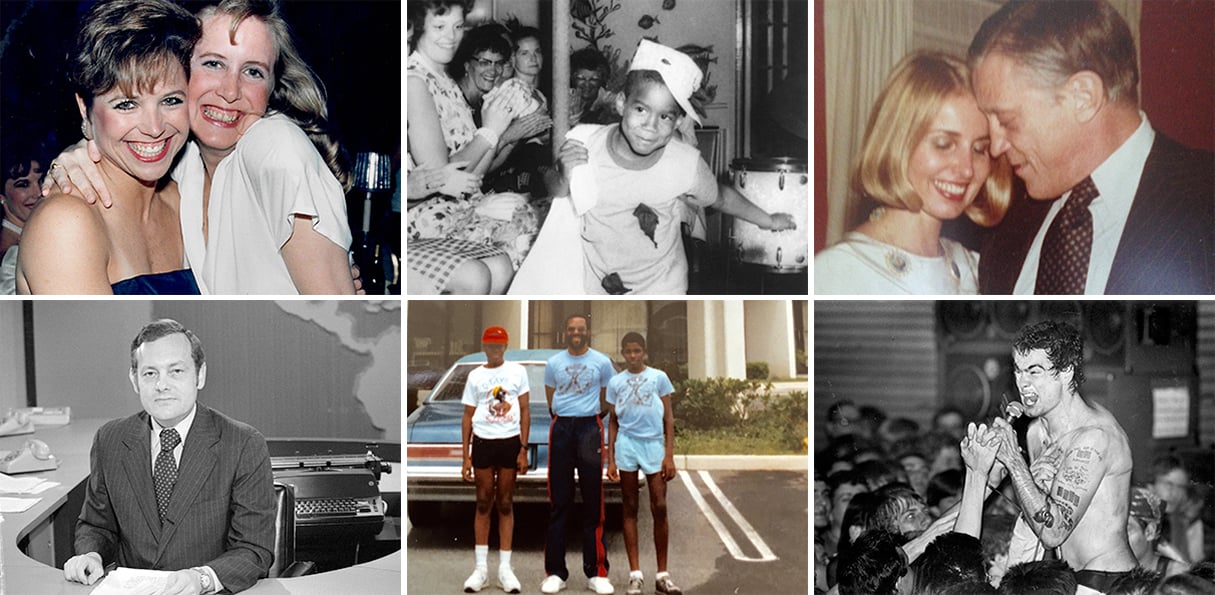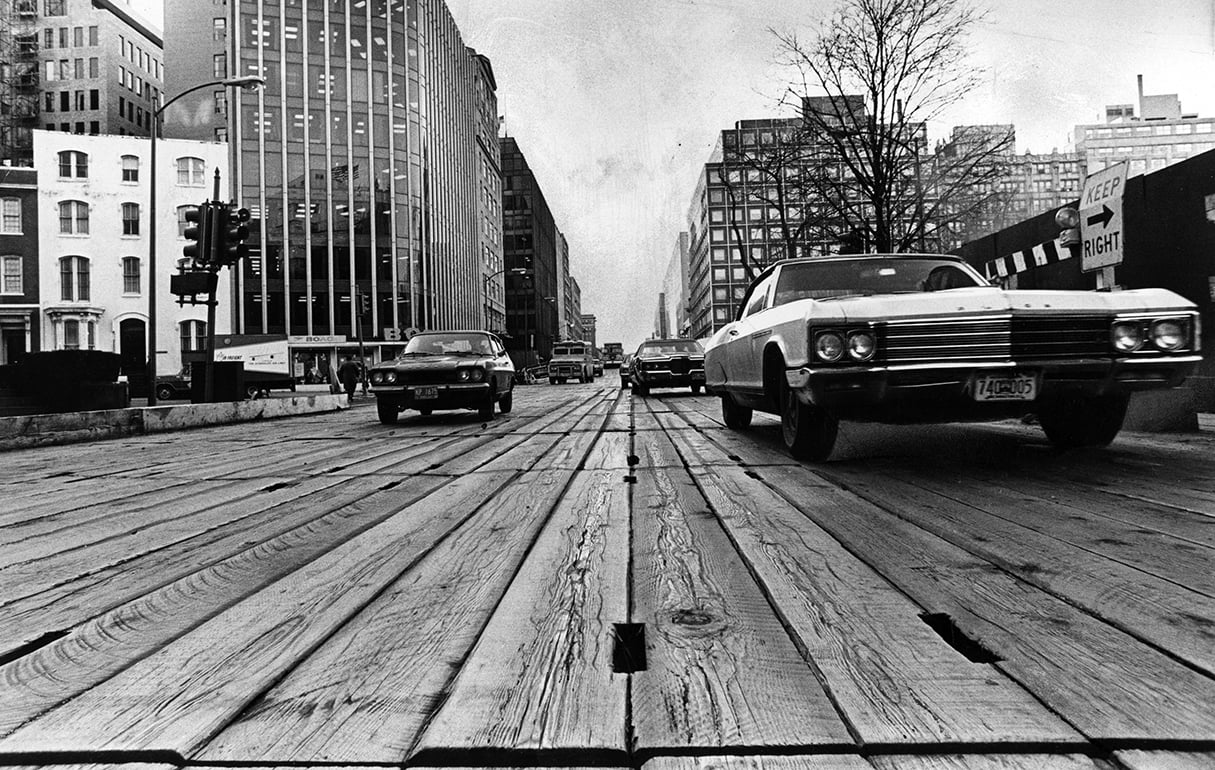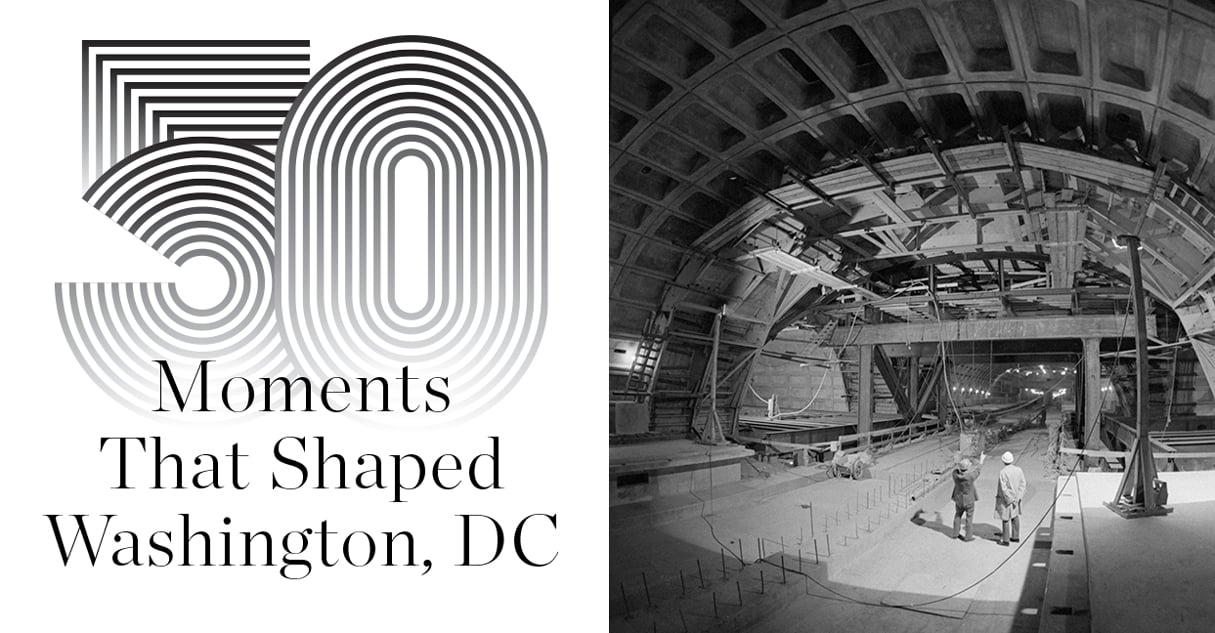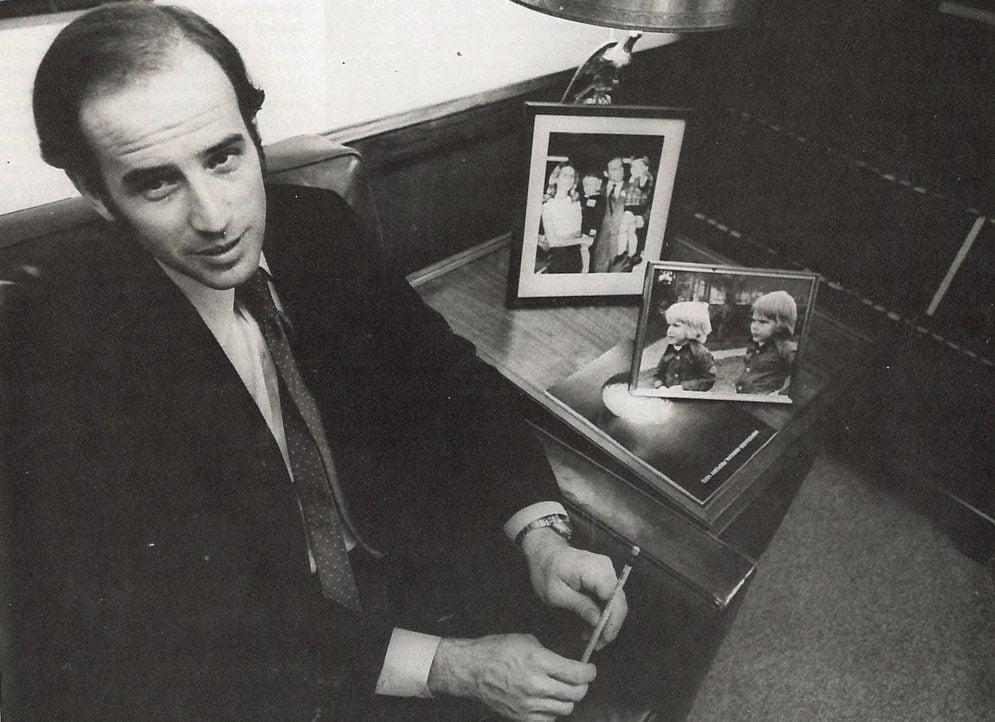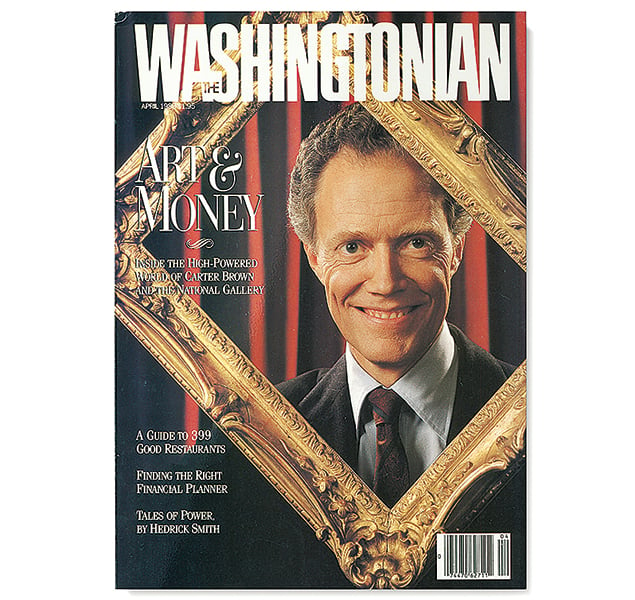Katie Couric
1980
Arlington native, former cohost of Today and anchor of CBS Evening News, now global news anchor for Yahoo.
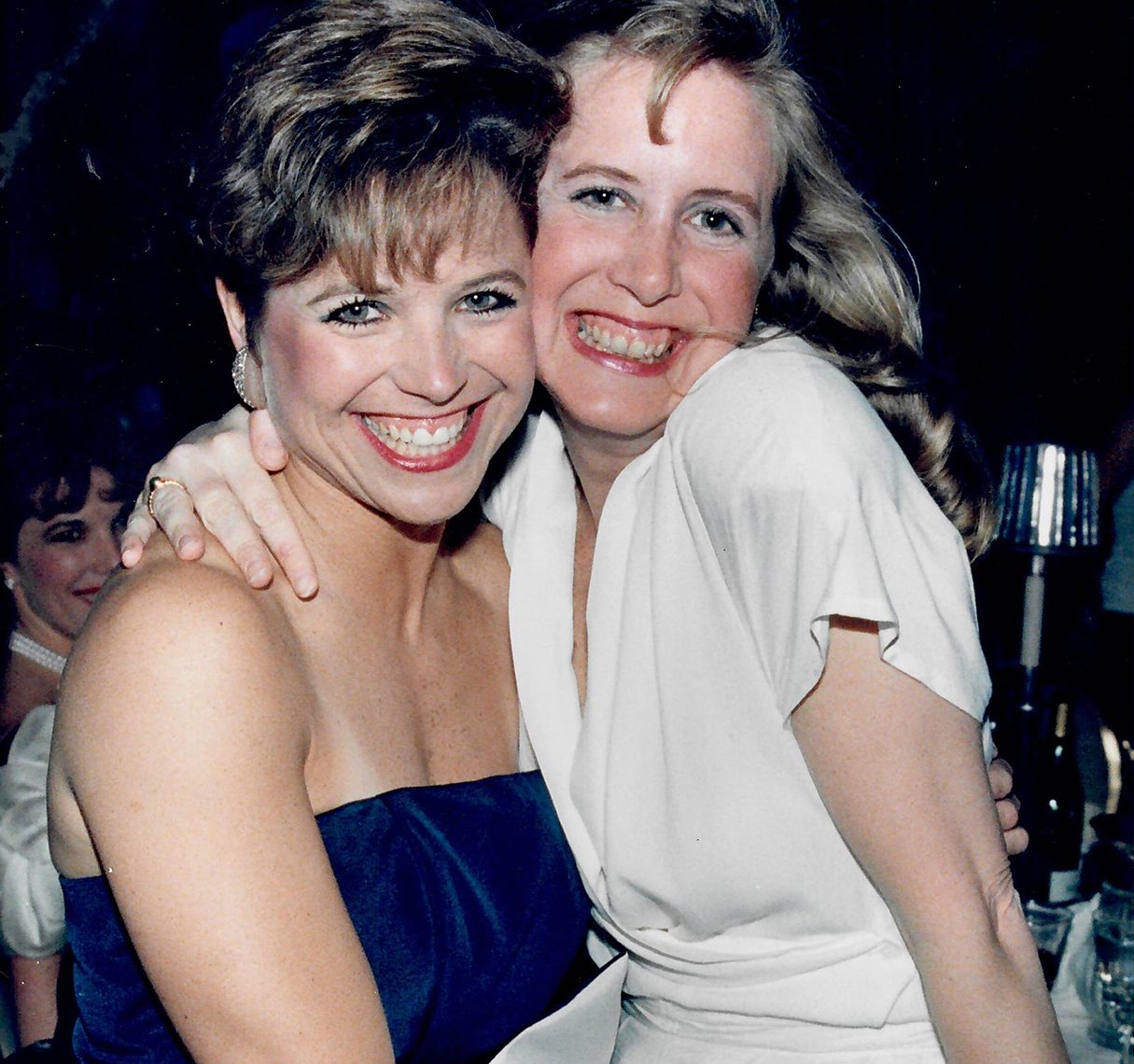
“I was working for ABC–my first job in television and really my first time out on my own. I remember Sam Donaldson grabbing me on my first day and whisking me to the White House to watch a briefing. My first job, my first network experience, my first Radio & Television Correspondents’ Dinner–I got so excited when I saw Jane Pauley in the security line. It was the first year I felt like a true Washingtonian. It wasn’t so much I was seeking fame and fortune–I was just seeking a paycheck and an interesting job.
“I was living in Georgetown on Dent Place. I’d never lived in DC until then. I would go to the French Market. It meant going out to the River Club. Duke Zeibert’s was the place to be seen. I was kind of naive–not necessarily fallen off the turnip truck, but it was all very new to me.
“I did, that year, think about leaving television. I’d work 11 to 7 one day, 3 to 11 the next day, I’d work the overnight, and I worried it was a dead-end job. My big responsibility was answering the phone, making coffee, changing the ribbon on the teletype machine, passing out rundowns and newspapers. I got Frank Reynolds ham sandwiches. There weren’t that many women in important positions, and the majority of roles seemed to be occupied by men. That was when ‘harass’ was two words instead of one.
“The Iranian hostage crisis was going on, and it was the beginning of Nightline. I didn’t have a lot of responsibilities because I was in an entry-level position, but just to be involved in this whole new enterprise was fun and interesting. Washington was a very exciting place for young people to be because of the sense this was where powerful people were doing important things.”
Henry Rollins
1980
A key figure in DC’s ’80s punk scene, he was a member of the local band State of Alert and went on to front Black Flag and the Rollins Band.
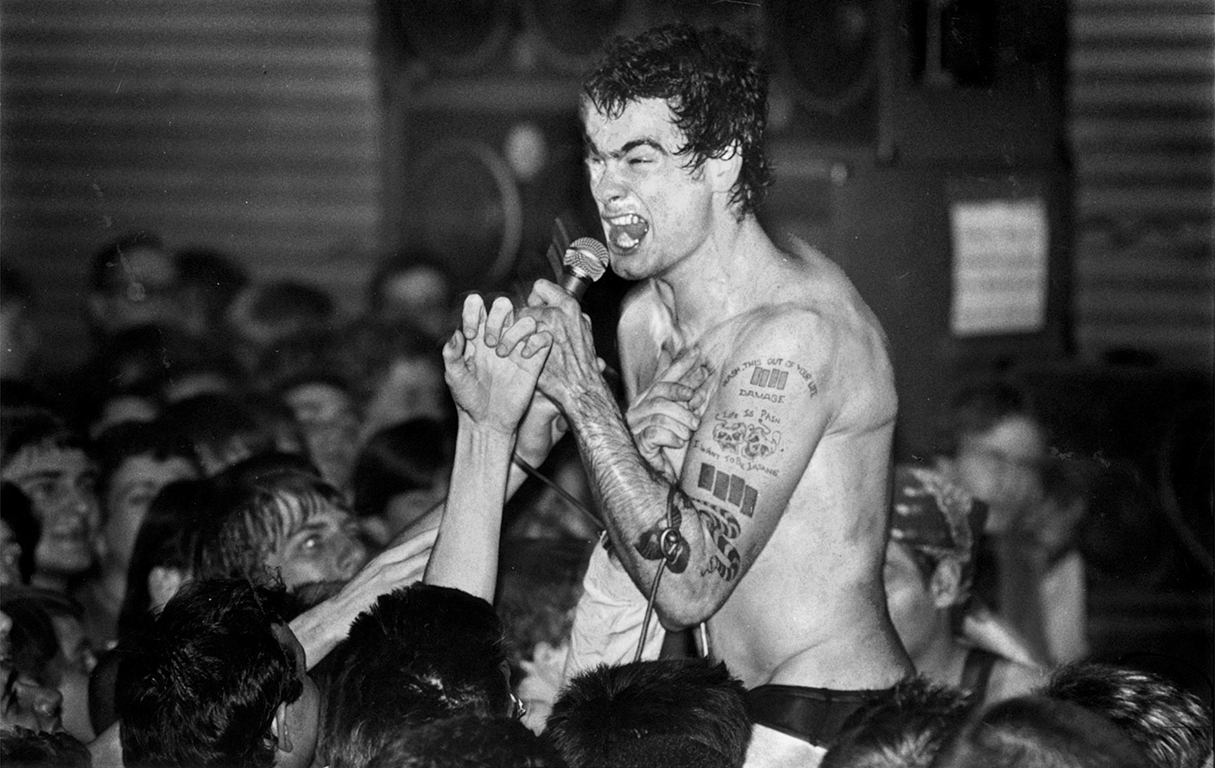
“The year before, I graduated from high school, and there was the revelation that the coming September I wouldn’t have to put my uniform on and ship myself out to Bullis, the prep school for boys in Potomac that had been my experience since sixth grade. So the first idea of adulthood starts to hit you.
“When 1980 comes, I’m working full-time managing the Georgetown Häagen-Dazs, I have an apartment behind the Marriott by Key Bridge in Rosslyn, I’m out in the world–a young adult pulling my weight for the first time, doing what I want when I want. That freedom was so intoxicating. I’d take a dinner break and eat at the Roy Rogers across from Olsson’s Books & Records, and there was just something about that: I’m buying this food with my wage, and I’m on my dinner break! You’d get off work and think, I’ve got to go to band practice, then back to work again! You’d go to a gig and realize, I’m not going home after the show; I’m going to my apartment! Having money and responsibility as an adult–there was nothing like it.
“Besides that, there was Washington, where I’d been living since birth. The whole city revealed itself to me differently as an adult than even six months before. Something about being on your own where the city becomes more yours, in a way.
“In 1981, I auditioned for Black Flag, made the cut, and left town with a duffel bag and a bus ticket. But I look back at 1980 fondly. Those were some good times. Even the bad parts I liked because it was adult stuff. To live it all again would be kind of crazy, but it’s not a bad daydream to have on a long flight.”
Sally Quinn
1978
Washington Post journalist who made her name writing for the Style section in the 1970s and was married to late Post executive editor Ben Bradlee for 36 years.
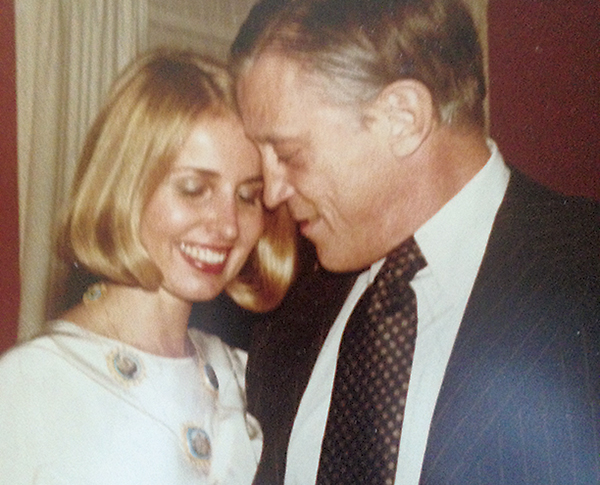
“Ben was always worried about getting scooped, even when it came to our wedding. He popped the question one night in the fall of 1978. We were having dinner at Twigs, in the Capital Hilton on 16th Street. ‘Well?’ he said. ‘Will you marry me?’ I could hardly breathe, but I got steady enough to say yes.
“It had already been an amazing year. Jimmy Carter was President. The Democrats were back in town. Watergate was over. Simon & Schuster had just bought my first novel. I was headed to Israel for two weeks on assignment. We decided to get married as soon as I returned. ‘But we cannot tell a soul,’ Ben admonished me. ‘No one. I don’t want to get scooped by the Washington Star.’
“We told only close friends in the wedding. Judge David Bazelon married us on a Friday afternoon. Kay Graham was matron of honor. Carl Bernstein and Richard Cohen broke the glass. We loved that Jewish tradition.
“That night, I planned a dinner party, but I still couldn’t tell people what we were celebrating. I ordered a wedding cake and prepared for a feast. Turns out the British ambassador was having a dinner the same night, so I kept getting regrets. But I already had the cake! So I begged, I called in chits, and people showed. It was Ben’s third marriage and my first. We promised it would be my only and his last.
“The secret held: The Post broke the story in the Saturday paper.”
Dinaw Mengestu
1996
Novelist and Georgetown University graduate whose first book, The Beautiful Things That Heaven Bears, was about African immigrants in a newly gentrifying Logan Circle in the 1990s.
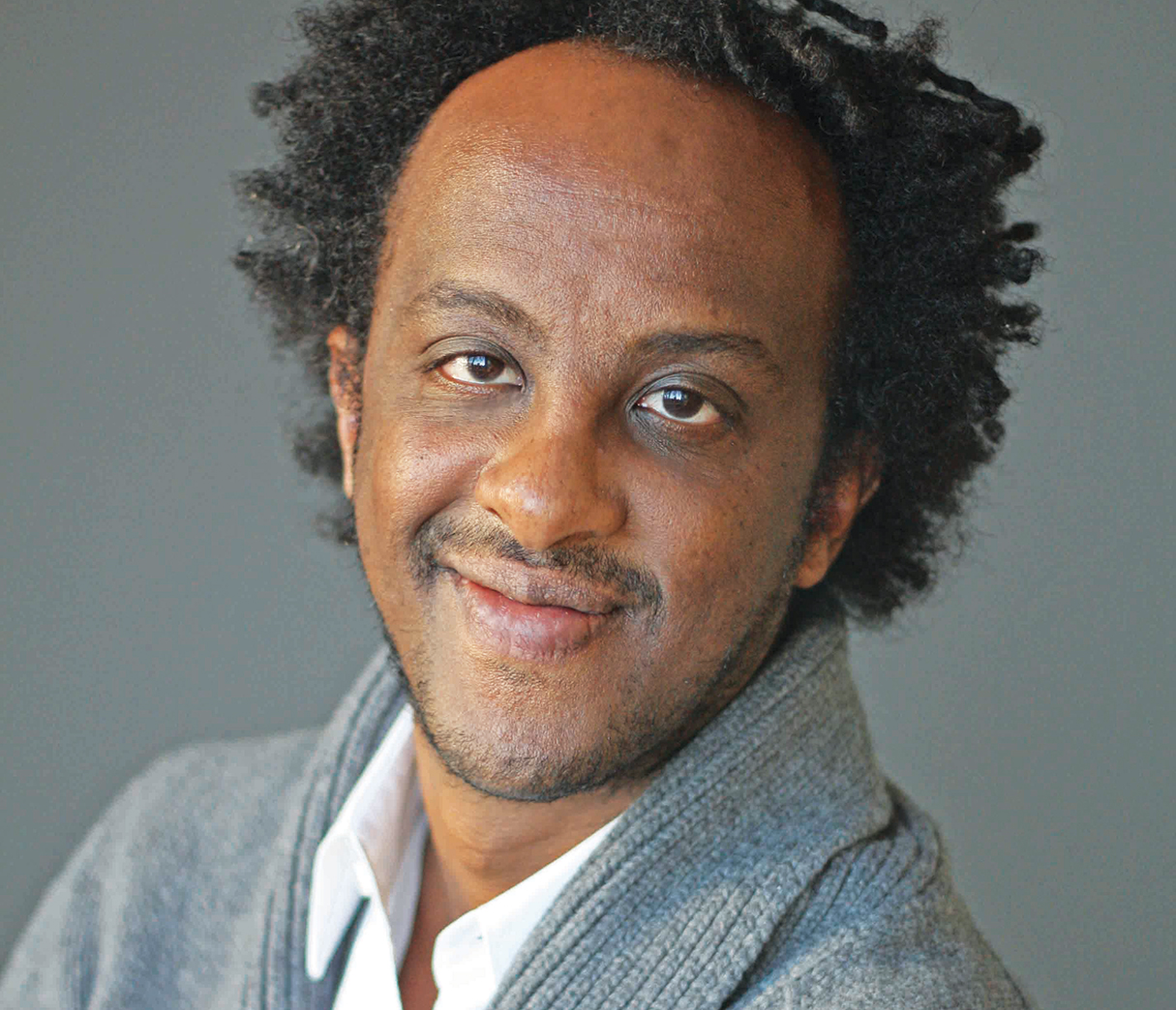
“It was my first year at Georgetown. I didn’t spend a lot of time on campus–I spent as little time as possible there, actually. I thought I wanted to be in politics; I wanted to figure out how to have some impact in the world. I was doing a lot of volunteer work with the National Coalition for the Homeless, helping a couple of young college graduates trying to start a nonprofit in the East Capitol housing projects. I spent most of my time between classes and in the evenings out there.
“One of my best memories is spending 24 hours with a homeless guy in DC. He lived on K Street underneath one of the nice buildings. I walked with him all day and night, and slept with him and tried to see the world through his eyes. It gave me a great sense of the grandeur of DC. When you spend a lot of time walking with somebody, you realize how invisible parts of the city are. They’re in front of people’s eyes, but they go unwitnessed oftentimes.
“Seeing things like this probably compelled me, as much as anything, to be a writer. You start realizing there are all these interesting stories that aren’t being told or heard. Writing seemed like the most natural way to express what I had experienced and what I knew and what I saw. I wanted to turn those experiences into stories. A lot of the things that happened in The Beautiful Things That Heaven Bears began with my first year in DC.”
Bob Schieffer
1969
Longtime broadcast journalist and host of CBS’s Face the Nation for 24 years. He retired this year.
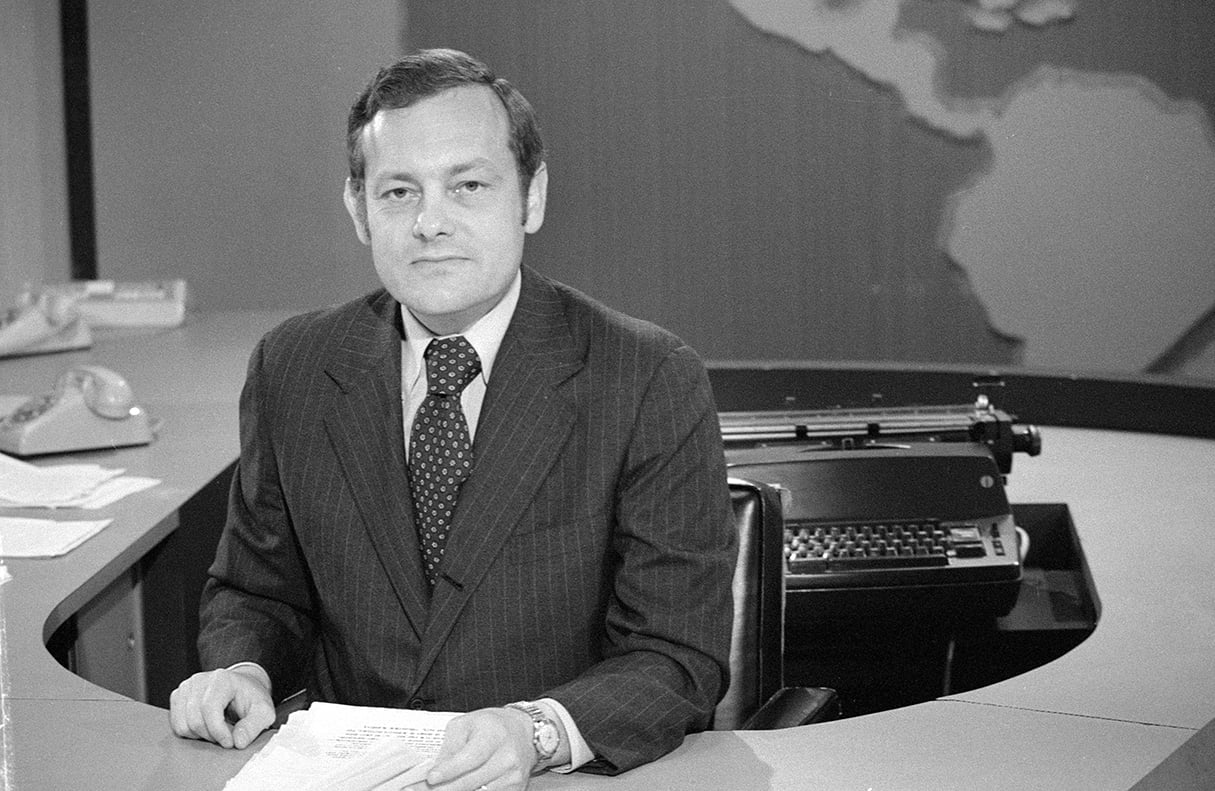
“I’d been working in Texas when I got hired to come to Washington in 1969 by a company called Metromedia, which was going to form a fourth TV network. I’d always loved covering politics, and Washington is where I really wanted to be. But financing for the new network fell through and I found myself working at Metromedia’s local station, Channel 5. It was fine, but I’d had a better job in Texas. I said to my wife, ‘We’ve made a terrible mistake. We need to go back to Texas.’ She said, ‘If you haven’t noticed, I happen to be pregnant. Can we at least wait until this baby comes?’
“I had always wanted to work at CBS–I loved Cronkite. But I’d never been able to get an appointment. One day, I went over to the CBS bureau without an appointment, walked in, and said I was Bob Schieffer and was there to see Bill Small, the bureau chief, about a job. A woman said, ‘Oh, yes, Bob–come right in!’ I’m ushered in, I’m interviewed, and I’m hired at CBS! Some years later, I figured out I’d walked in on another guy’s job-interview appointment. Small had no idea who I was but realized I wasn’t the other guy when I handed him my résumé. He didn’t say anything, though. In fact, it turned out he knew my boss in Texas. That’s how I got to work where I’d always wanted to. Anybody who tells you luck doesn’t play a part is wrong.”
Greg Engert
2009
Beer director of Neighborhood Restaurant Group (Birch & Barley/ChurchKey, Bluejacket, Rustico, and others).
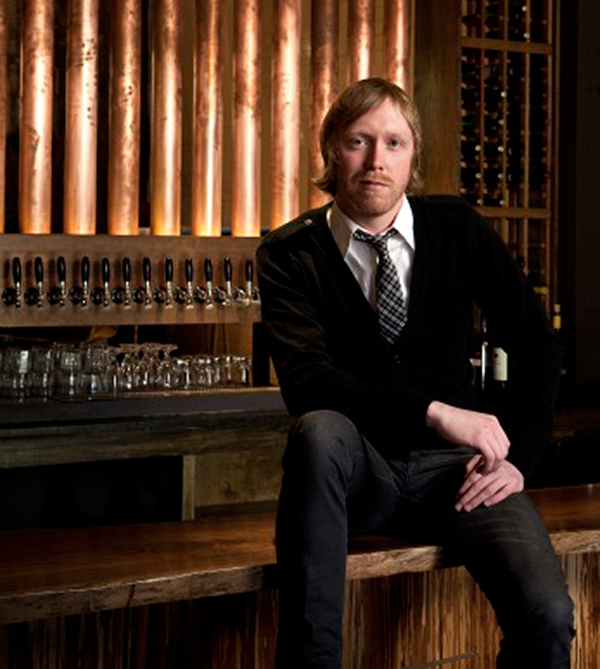
“It was a crazy year. My fiancée and I moved into the Cairo in Dupont because we were to open Birch & Barley and ChurchKey, which I’d been working on since 2006. I was commuting to Rustico in Alexandria but spending a lot of time on 14th Street, which was not the 14th Street we know today. There really wasn’t anything except the Black Cat, Café Saint-Ex, and us. Once we opened, guests would say, ‘The list is amazing, but don’t you have any other local stuff?’ I’d say, ‘There are some Virginia and Maryland breweries, but we don’t have a DC brewery.’
“In hindsight, it makes sense 14th Street would get littered with restaurants after 2009. It’s not like people want steak and fine wine anymore–they want the best coffee, beer, cheese. I think a lot of people may have drunk really great wine but not given a shit about the coffee they drank. Fine-dining restaurants would have Budweiser, Stella, and maybe Sam Adams. ChurchKey and Birch & Barley were the first time anyone had done temperature-controlled draft lines and bottles, specific glasses across the board, then wedding the flavors of craft beer with the food. We opened and had a line down the block. It showed beer had arrived in DC.”
Susan Stamberg
1971
Cohost of All Things Considered for 14 years starting in 1972; now a special correspondent for Morning Edition.
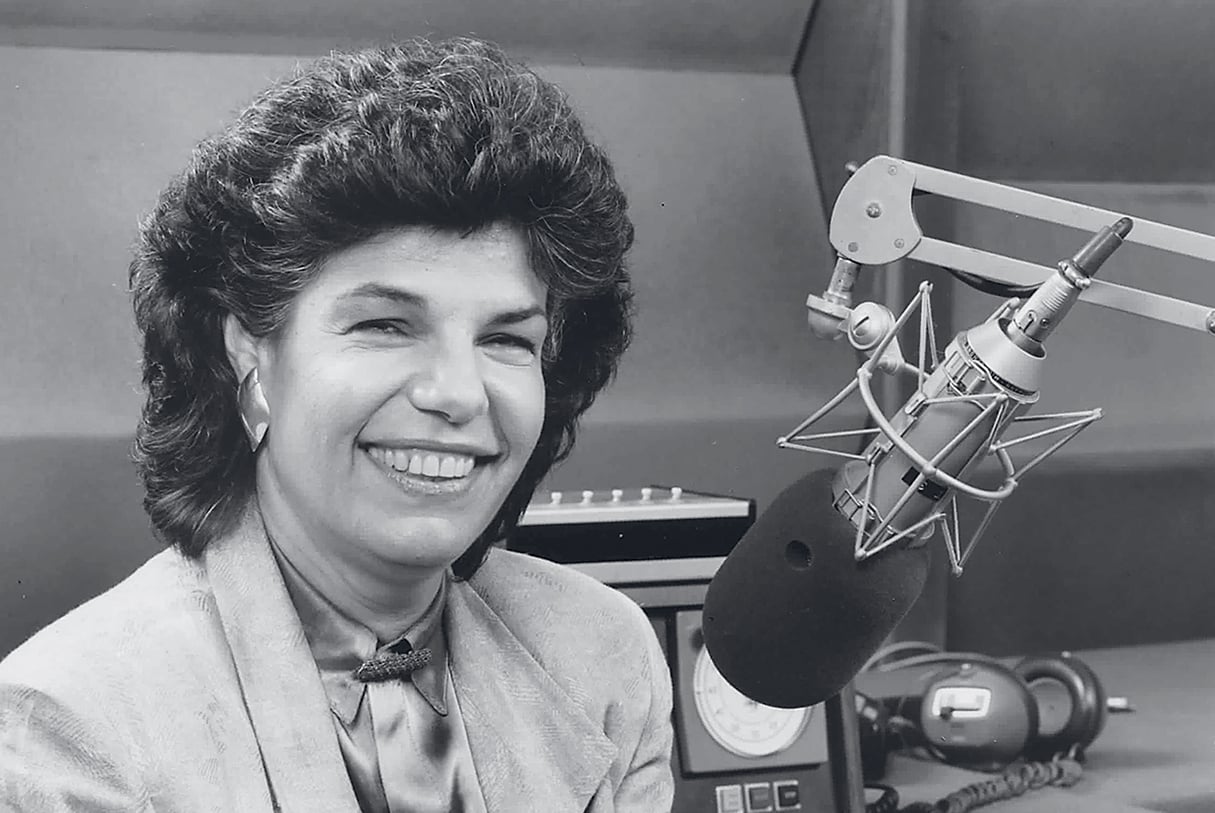
“So much was new, and so much was happening. My husband was with the Agency for International Development, and we were back from India. I was a new mother ready to go back to work and got hired at NPR, which was just starting. I was asked to start April 1, and I said, ‘I’ll have plenty of time to make a fool of myself–I don’t need to start doing that on April Fool’s Day.’ So April 5 was my first day.
“I dropped my son off at the sitter’s and drove down to 16th and I, where NPR was. There’s this cliché, ‘My heart sang,’ but that’s how it felt. Everything was new: the baby, my life in Washington, and I was going to this brand-new institution. There was such electricity in the air–the civil-rights movement was bubbling, the city was becoming desegregated in a way it hadn’t been, the women’s movement was taking hold, the Vietnam War was at a peak. On our first broadcast, we covered an antiwar march at the Pentagon.
“There was a sense of exploration and invention because we knew we’d be making something ambitious and serious. We had no furniture yet and had to sit on the floor. I was 32, and the rest of the staff was younger, in jeans, long hair. I remember looking around wondering, ‘Who are these people?’
“We’re doing a lot of new things now, but that first passionate, creative splurging that we were doing–it doesn’t feel like we’re doing that now. But there’s only one first time.”
Judith Viorst
2015
Author of many books for children (Alexander and the Terrible, Horrible, No Good, Very Bad Day) and adults (Wait for Me: And Other Poems About the Irritations and Consolations of a Long Marriage, out this month).
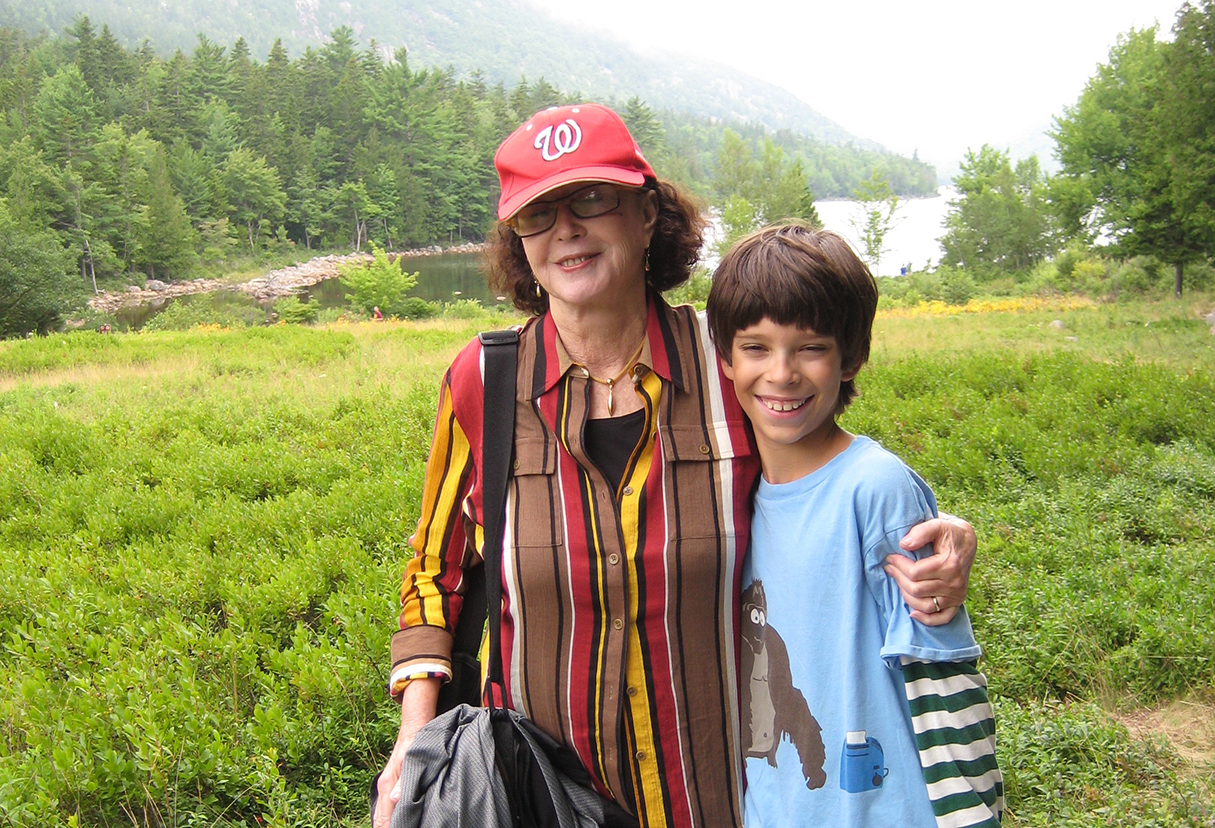
“My favorite year is now–an amazing way to feel at age 84½. I spent many weekends during early motherhood picketing the White House against the Vietnam War and for civil rights, pushing one of my boys in the stroller and tugging the other two along. I’ve been feeling so bad about the world we’re leaving them and their children, everyone’s children–from Charleston to ISIS–so the Supreme Court rulings on Obamacare and gay marriage have lifted my heart.
“When you’re young and building a career in the hustle and bustle of DC, meeting deadlines, raising kids and trying to get them out the door, it’s hard to slow down and notice what’s good. But even though I’m still writing (two new books coming out) and very involved with kids (reading to my grandsons’ classes at Janney Elementary, watching their sister graduate from Alice Deal Middle School), I have slowed down enough to acquire a deep sense of gratitude–for my 55-year marriage to Milton, our three married sons and seven grandchildren, wonderful friends. When I was younger, I did lots of bitching and moaning, but it seems possible that as you get older, you can learn to notice every sunset–and a thing or two about the sweetness of life.”
Ana Marie Cox
2004
Founding editor of the political blog Wonkette, Cox now writes for the Daily Beast.
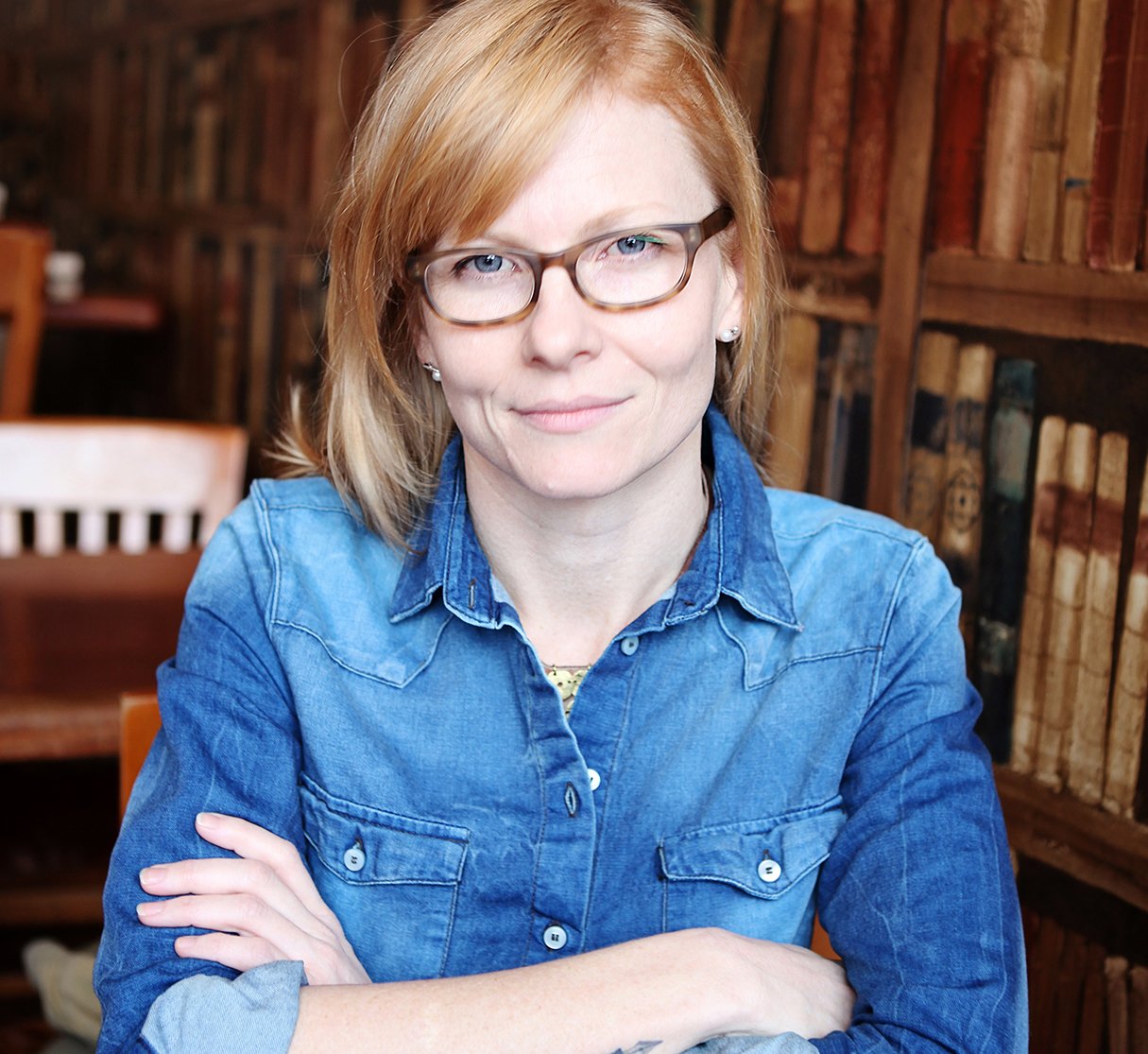
“I had been a journalist for ten years when I moved to Washington in 2001, but I had a tough time finding and keeping jobs–2003 sucked. I considered going to graduate school for clinical social work.
“Nick Denton had just started his Gawker empire in New York. I had my own blog at the time, and he convinced me to run a Gawker site in Washington. We launched Wonkette on January 4, 2004.
“I had been working for AOL, and my fun bar was low, so I loved it right from the start. This was what I was supposed to be doing. The universe said, ‘Yeah, okay.’
“Washington was operating at a humor deficit at the time. Almost anything that added a touch of mockery to the conversation might have been a hit.
“Everyone in Washington thought that they were a fraud at some level. I came along and said, ‘You’re right.’ Republicans controlled Congress and needed to come down a peg. George W. Bush was in the White House. The Washington press corps was packed with pompous people.
“It was a target-rich environment.”
Randall Kennedy
1968
Harvard law professor and author.
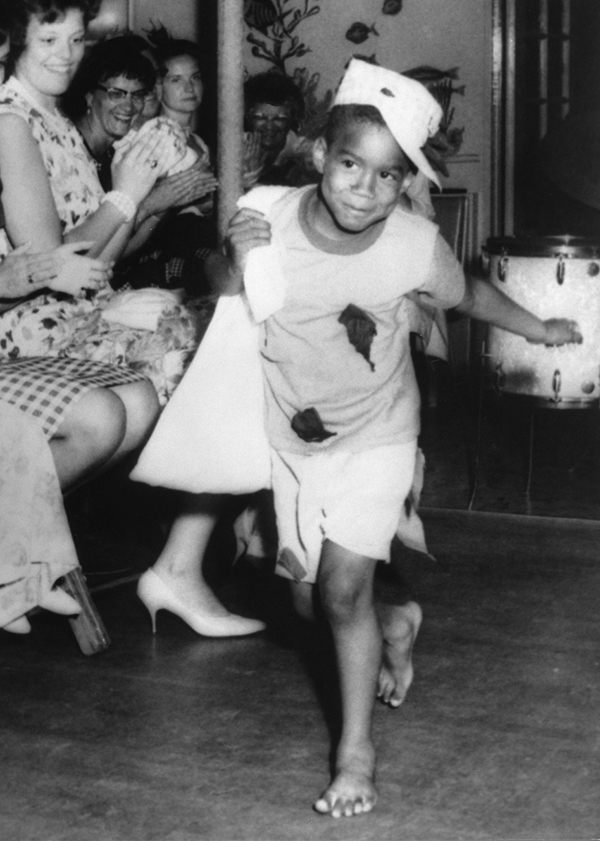
“I was 14 and becoming quite a good tennis player. I played at the Takoma public courts, now named after my father [Henry Kennedy Sr., who directed the DC rec department’s youth tennis programs].I played tennis, I came in, I was eating dinner, and ring-ring-ring goes the phone. A buddy from Paul Junior High says, ‘Randy, um, Dr. King has been shot,’ then hung up. The next day, I go to school and it was bedlam. I left after half a day. People were talking about looting and fires. I practiced my serve, and around 5 a National Guardsman gets out of his Jeep. He comes over and says, ‘Son, you’ve got to go home.’
“That fall, I started at St. Albans. The public school had had an appreciable number of white kids but was mostly black. Then I go to St. Albans and it’s flipped. I remember the first time I went to lunch. At every table was a teacher and maybe 12 boys. They served fried chicken. A kid said to the teacher, ‘May I pick up my fried chicken to eat?’ I thought, ‘That’s weird–how the hell else would you eat it?’
“That was the summer of the Democratic-convention riot in Chicago. I’d play tennis, come home, and flip on the TV. It was like a movie unfolding. It would be a close question: turn on the news or watch Star Trek? It was just one thing after another after another.”
Kojo Nnamdi
1989
Host of WAMU-FM’s The Kojo Nnamdi Show.
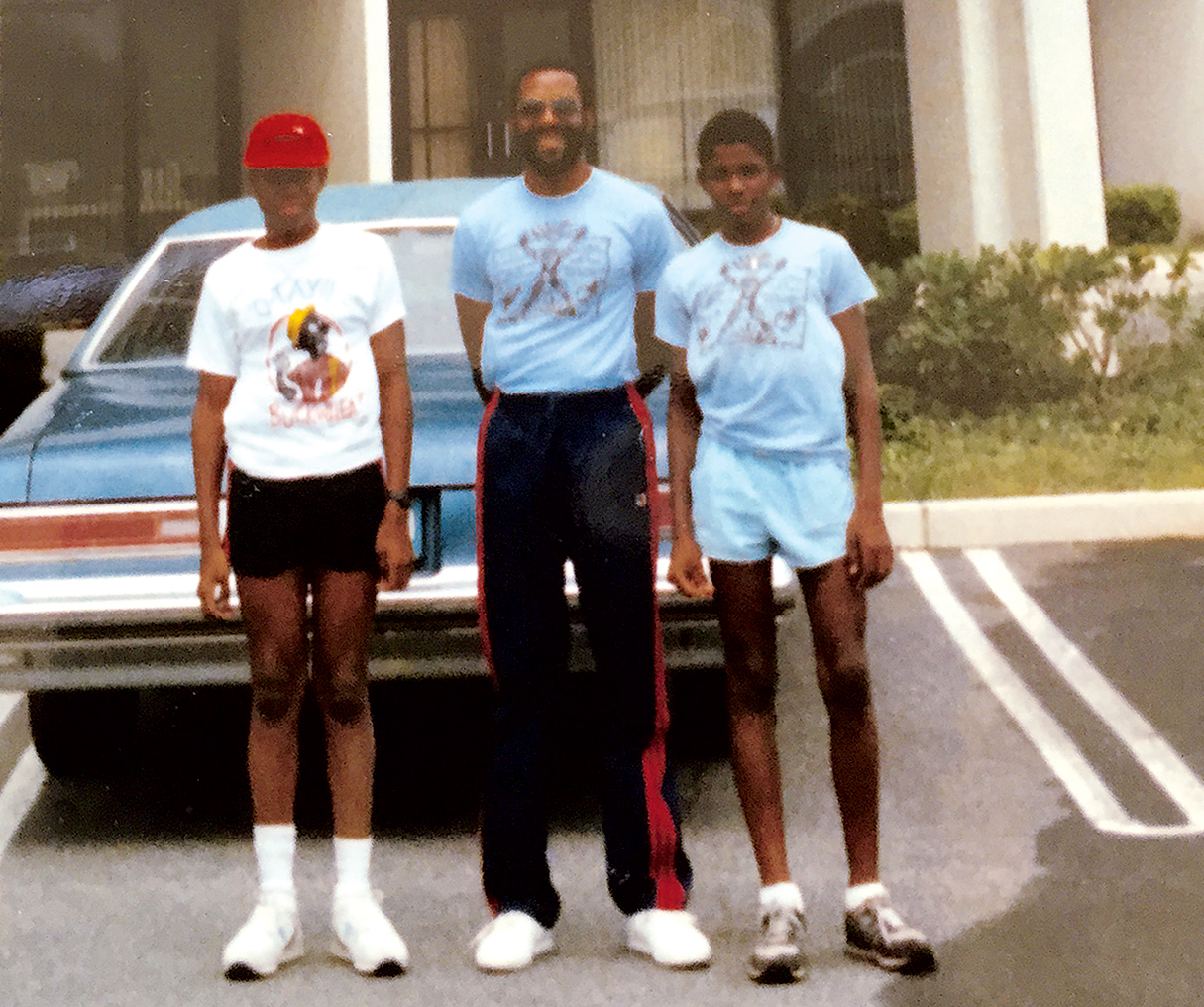
“My favorite year has to be 1989. The place was Shaw. The surprise came from my sons.
“I had moved to DC from New York in 1969. I had had a son with my first wife, and he stayed in New York. My second wife and I married in 1971 and had twin boys. She died suddenly in 1982. I found myself raising two boys in Shaw, which was considered a sketchy neighborhood. Many friends had moved to the suburbs, especially when Shaw became the center of the crack epidemic. My sons entered Dunbar High when classmates were dealing crack in the schoolyard. ‘Why are you still there?’ friends would ask. Short answer: I felt comfortable in my neighborhood. I knew the crack dealers. I knew the crack users. They seemed to respect me and my sons.
“My twins completed the pre-engineering program at Dunbar and graduated in 1989. They were headed to Howard, where I was working. Meanwhile, my eldest son had been getting into trouble on Long Island after graduating from high school. He had decided to enlist in the Army and was in basic training at Fort Sill, Oklahoma. After the twins’ graduation, my fiancée and I took them on a road trip to Atlantic City. She turned around midway through and asked them: ‘What are you thinking about for your futures?’
“They looked at one another. ‘Our best years are behind us,’ one said. The other chimed in: ‘Living with Dad, watching him struggle to raise us, we both learned so much.’
” ‘And it was enjoyable,’ the other said. ‘We shared a lot of laughs.’ I was keeping my eyes on the road, trying to hold back the tears.
“That summer, I flew to Fort Sill to see my eldest boy graduate from basic training. And I felt complete, for the moment.”
Eleanor Holmes Norton
1991
US congressional delegate representing the District of Columbia.
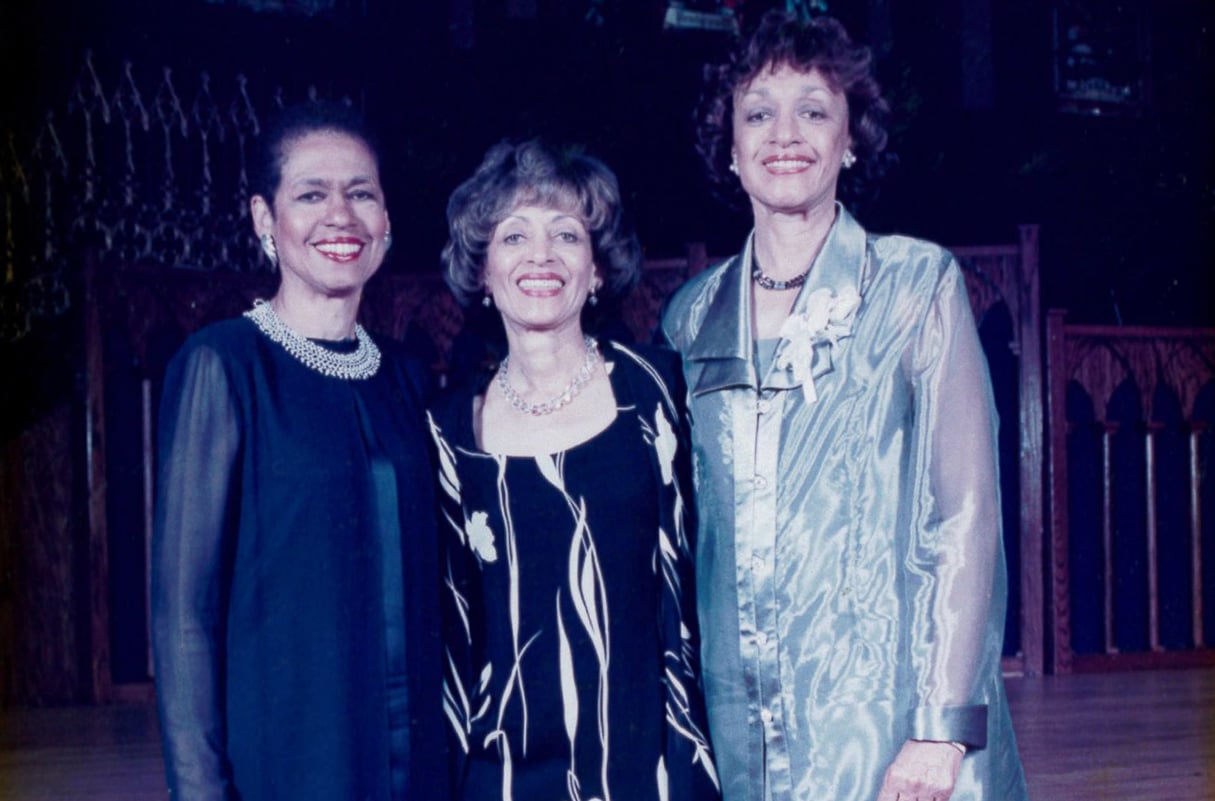
“In January 1991, when I stood before my family and friends to be sworn in as the District’s second House member under home rule, I thought: ‘What am I doing?’ It was wonderful that the great-granddaughter of a runaway slave could make it to this point. I was proud that a woman raised in a segregated city could represent that city in Congress. I looked at my mother, a retired DC public-school teacher who had raised me knowing that for colored children, education was the only way out. At the same time, I felt tenuous. I had come from a history of protest against the Establishment, and the notion of joining it in any form was counter to what I had lived through in the civil-rights movement. Wasn’t serving in Congress aligning me with all the things I disagreed with?
“I quickly realized in my first year that the District is truly second class in Congress–always an underdog, constantly fighting for independence. Representing the District became a continuation of my life in the civil-rights movement.”
Interviews were conducted by Cathy Alter, Benjamin Freed, Harry Jaffe, Sarah Lindner, and William Triplett.
This article appears in our October 2015 issue of Washingtonian.

